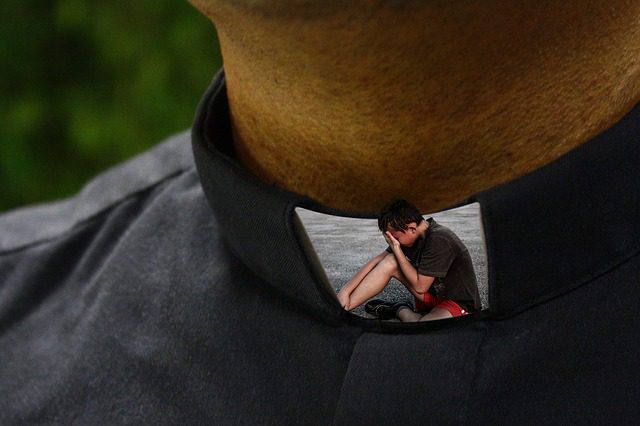
By Jaime Mahler
To where shall our money go? If you have followed some of the recent scandal news that broke this week, involving bishops, money and the statute of limitations, you may find the reaction to that news surprising. Some were angered, some questioned why spend money on something like that and then some found themselves asking why people wait so long to go to authorities.
In the Catholic Church, authority is found in a hierarchical structure: the pope, then the cardinals, then the bishops, then the priests, then the laity. If you analyze this structure, the most vulnerable population is the laity, not the priests. When you question why someone would struggle with bringing to light the abuse that they faced as a child, you must look at the way that power is perceived.
When an individual is traumatized as a child, a number of things could happen. A child could internalize the abuse and think that they somehow “brought it on themselves.” The abuser could use deep psychological manipulation by means of blaming God. For example, “I know it was God’s plan for this to happen,” or “ I prayed about this and God told me this is making you holier.” The abuser may be a close family friend and therefore even more trusted by those in power (the parents). By the victim disclosing the abuse to their own parents, who love and trust the priest dearly, the victim is not only less likely to be believed but also may struggle with more internal turmoil surrounding the implication of abuse.
Another factor to consider is that trauma is not linear. Trauma has no timeline. The abuse could have started so young the child didn’t know to question the abuse until adolescence. At that point the individual is trying to understand their own sexuality, their own beliefs and their own urges. They may look back at the abuse with spotty memories, odd associations with pleasure and pain, disjointed feelings of love and hate, all while trying to understand how to cope with all their new found insight on what it means to be an individual.
By adulthood some victims may find the strength to address the abuse, although some may not. In these cases, if a child brought up the abuse in the past and it was met with disbelief, they may have internalized this disbelief. They may question, “did that happen the way I truly remember it happening”? If an individual can be convinced to confess a murder they never committed in less than a day of interrogation, why is it so hard to believe a child questioning their own abuse that was never accepted as truth by all the people they trusted the most so many years ago?
Now taking all this with them, they face a choice. Equipped with a spotty memory, false doubt that was placed on them as a child, anger that this happened to them and nothing has been done about it and a sense of hopelessness when they see their abuser on the front of the Catholic circular they must ask themselves, is this worth the pain? Those that say “yes” to the question will face scrutiny, added doubt, and questions about why this took so long from individuals that had the privilege of never understanding the twisted dynamics of abuse.
So let’s be clear. When you question the motives behind the survivors of abuse, your privilege is showing. You have the privilege to not see the insidious nature of grooming and the sickening power dynamic that is found between a person of authority and a child with a developing mind, developing spirituality and developing morality.
Those who seek to limit victim unification, empowerment and recovery are evil. Those who seek to cover up not only sexual abuse, but emotional and spiritual abuse that to this day echos within their psyche not only deserve to see justice but a complete dismantling of their so-called vocation. For the research for this article a simple question was asked to multiple priests. How many psychology classes did they have to complete during their 8 years of seminary? The average was 1 psychology class in 8 years. Why are we facing such ignorance of basic empathy and compassion surrounding abuse?
The answer may be, they just don’t want to know.













